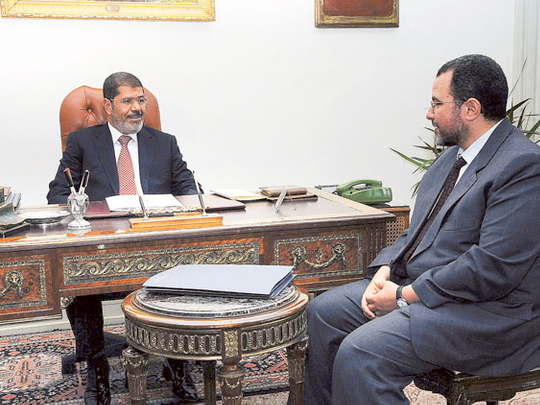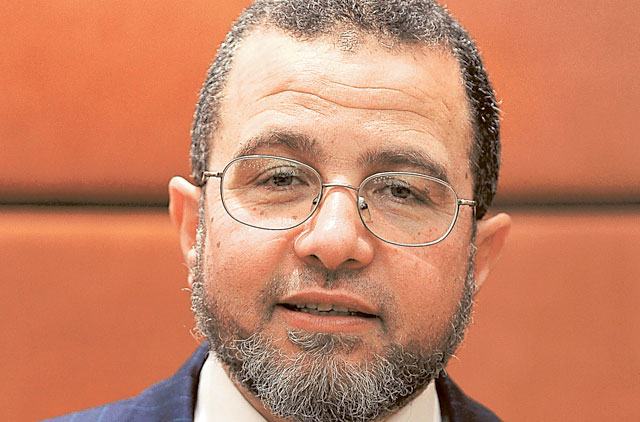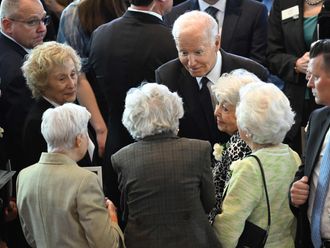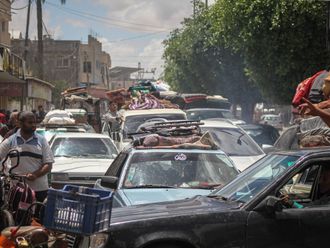
Cairo: Egyptian President Mohammad Mursi has named Hesham Qandil, the minister of irrigation and water resources in the outgoing government, as the prime minister of the first cabinet since the country’s first elected civilian leader took office late last month, reported state Middle East News Agency.
The appointment comes to end weeks of speculation about identity of the new prime minister. Qandil, 50, was named as minister of irrigation and water resources in the government of Essam Sharaf in July 2011 and kept the portfolio in the successive government of Kamal Al Ganzouri formed in early December.
“Qandil’s selection to be the new prim minister was made within the president’s promise to choose a national, independent figure who is not affiliated to any political party before or after the revolution,” said the presidential spokesman Yasser Ali, referring to a popular revolt that toppled former strongman Hosni Mubarak.
An engineering graduate, Qandil worked for several years in the Egyptian Ministry of Irrigation and Water Sources and held Africa-related posts including the head of the Nile department at the African Development Bank. He took part in setting up the African Council on Water and was a member of a government Egyptian-Sudanese committee on Nile.
Qandil’s appointment to head the new government comes a week after Mursi attended a pan-African summit in Ethiopia, the first trip to the country by an Egyptian president in 17 years.
Egypt’s ties with Africa became lukewarm after a 1995 bid on Mubarak’s life in Ethiopia.
In 2010, six Nile source countries, including Ethiopia, signed a framework agreement on water-sharing. Egypt, which mainly relies on the Nile to meet local water needs, opposed the deal and insisted on what it called its “historical” right to the Nile waters stipulated in colonialism-era agreements signed in 1929 and 1959.
The pacts secure Egypt around 55.5 billion cubic metres of water annually and give it the right to veto irrigation projects along the river. Negotiations to reach a compromise between the Nile source countries and Egypt reached a deadlock under Mubarak, with Cairo threatening at the time to take whatever necessary steps to ensure that its “historical right” to the Nile waters will not be jeopardised.













